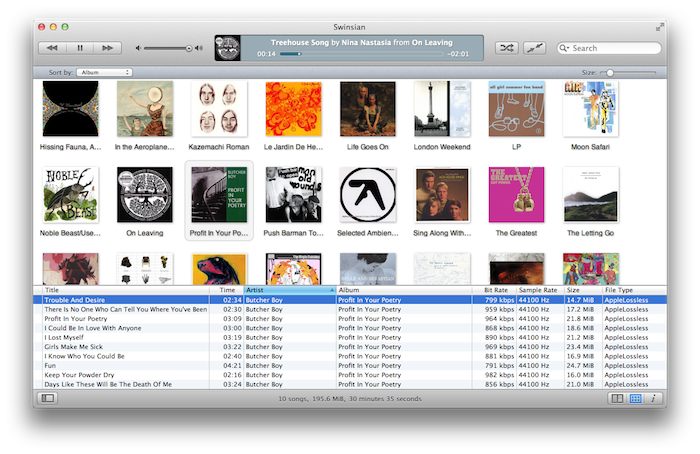
It appeared to be a random selection and I could not figure out what was going on! The smart playlists and songs were syncing to my iPhone just fine, but not the most recent 50, nor the most recent rated 5 stars. I've been using them for a few years without problem, then with the release of iTunes 9 (if I recall correctly) they appeared to stop working. The 'Rated 5 Stars' playlist is handy to see what recently added music warranted another listen. Interested about learning more about how alphabetization works? Check out our article on History of Alphabetization.Two of my favorite smart playlists are titled 'Last 50 Added' and 'Rated 5 Stars.' Which, as they sound, are smart playlists of the most recent tracks I've added to iTunes and my top rated music, respectively. So $ is seen as Dollar and ! is seen as Exclamation Mark.Īlphabetize them as you would normal words. When symbols are part of a unit such as a name, they are spelled out. Make sure you do not confuse the article “a” with an initial.įYI: You can ignore articles when alphabetizing a list using the alphabetizer. You must ignore these while alphabetizing.Įxample: When alphabetizing A Face and The Arm, The Arm will become before A Face. In the English language, there are three articles: the, a, and an. However, the symbol in this case (the hyphen) is not considered a separate symbol and should be ignored.Īrticles are words that describe the noun. Whether it’s the first name, middle name or the surname that is hyphenated, it will be treated as one unit. How does one treat hyphenated names? It’s pretty simple – you treat hyphenated names as one unit. That means if the first letter of their surnames were same as well, we would then look at the second letter in their surname. Nyugen will go first because we are looking at each letter (including the initials) by their designation. Smith would be filed first.īut what if the initials are same, like this: J.K. Initials are considered separate units and are also filed alphabetically. If the numbers are spelled out, they’ll be treated as normal words and filed alphabetically. You’ll file numbers in the same way you would file alphabets – in ascending order – that is, smallest to largest. because we disregard the t and f in twenty and four respectively. However, keep in mind that they are NOT spelled out.

Arabic numbers (0-9) are indexed numerically before alphabetic characters. Unit by unit: Here, each word, abbreviation, and initial is considered as a separate unit.įor this article, we’ll be focusing on the unit by unit version simply because it covers pretty much all the rules.Word by word: Here, each word is filed on the basis of the first letter.Letter by letter: In this version, spaces between the words are disregarded.There are three versions of alphabetical filing rules: For instance, having a standardized filing practice means documents will be easier to find, you can add or remove new entries without disturbing other entries, and alphabetization is an intuitive process so people other than employees can understand it as well.


The process has quite a few benefits as well. The way most companies do this is by alphabetization. It’s important for every business to have their employee information, company records, and other important data maintained in a proper and systematic manner.

There are different versions of filing rules so filing practices differ from company to company. Disclaimer: Before you start following these rules in the office, it’s a good idea to double-check with your employer about the alphabetizing rules followed in your company.


 0 kommentar(er)
0 kommentar(er)
